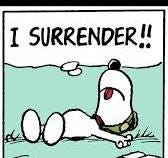The Dilemma of the Drying Rack
And a plea for your questions!
Dear Tamar:
I love discovering new ways to nourish myself and my loved ones—thanks to your guidance. But cooking requires cleaning—a task that, try as I might, I can never really get into the swing of. Do you have advice? Tips? Methodology? Commiseration?
-The Drying Rack
Dear Drying Rack,
In my mid-twenties, while studying for the LSATs, I helped my mother with a personal-chef client. On my first job, I washed a roasting pan in which I’d roasted pork loin with apples and onions—an old Gourmet recipe. The fact that I remember what I cooked is evidence of the manipulation I was planning. I’d removed and packaged the roast, evaluated the fond left in the pan, evaluated my mother’s professionalism and perfectionism, and decided to do a bad job washing. I left the “clean” pan where she could see it. When she went to replace the pan in the pantry, my mother gasped and made me promise to leave all remaining dishes to her.
I’ve done worse. When I had my own client, I shared the kitchen with the family’s live-in housekeeper. On Thursdays—when I worked—the housekeeper would be puttering around, folding kids’ clothes. After four hours of cooking, I would let myself visibly sag. I would embody my exhaustion in a way I don’t actually embody anything I feel. (I can’t begin to calculate how much money I’ve spent in therapy trying to.) As a kind fellow member of the staff, the housekeeper would offer to help me with dishes—help I always accepted. I brought gratitude offerings. But still.
There are more awful anecdotes—tales of affectations I developed that inspired people to relieve me of cleaning responsibility. I managed to engineer a collective, compassionate shrug in response to disorder in my wake. I’m not proud of this! In the Dictionary of Domestic Sins, next to the phrase “weaponized incompetence,” there should be a photograph of me. There should be a bounty on my head.
For a long time though, I relished the arrangement. I cook so often that it seemed only fair that I never had to clean. I half-believed I was, through my maneuverings, balancing the cosmic scales. I felt rascally. But I couldn’t see a better option until one day, watching a French movie—I forget which—I thought: I would be a happier human if I accepted that things, at their most correct, aren’t always good.
This registered in my mind as a French outlook—regardless of whether there’s any truth to the association. I started experimenting with a version of it: Instead of avoiding dishes—and stovetops and crumbs—and instead of addressing them while lamenting how I loathe the activities, I’ve been acknowledging my resistance, then doing the thing anyway.
And I’ve found, perhaps inevitably, that my low expectations and unwillingness to suffer have improved my experience. When I wash dishes, I am French! I don’t expect life to be good. Why should it be? But given its brevity and its tendency to offer unexpected delight, why would I avoid it?
Through slight pessimisme and immunity to distress, I’ve found occasional pleasure in getting pots clean. I’ve found pride in a briefly unstained stove top. I’ve realized that my objection to cleaning was just me measuring my effort against other people’s and suspecting I was experiencing injustice. I neither like nor dislike doing dishes. I know only that I do them, and that the spikes of resistance that used to erupt the instant I thought I would have to have softened, even disappeared.
Dear cook, let cleaning be one of many activities inside a life that can’t always be good. A month ago, a friend, watching me clear up, confessed that she’d modeled her cleaning after meals after mine—that the manner in which, in our house, cleaning seemed like a part of the meal and a part of the night was inspiring. After all: C’est la vie.
Dearest readers, there are so many of you! Please send me your queries. They can be anything at all, even tangentially related to eating or cooking or serving or hosting. Let me advise you!




I love all your writing, but I especially loved this one
Wow! What serendipity. This is a kitchen-based version of a conversation I was having with my therapist just this morning. She didn't describe the approach to life as "French" but that is how I am going to think of it...